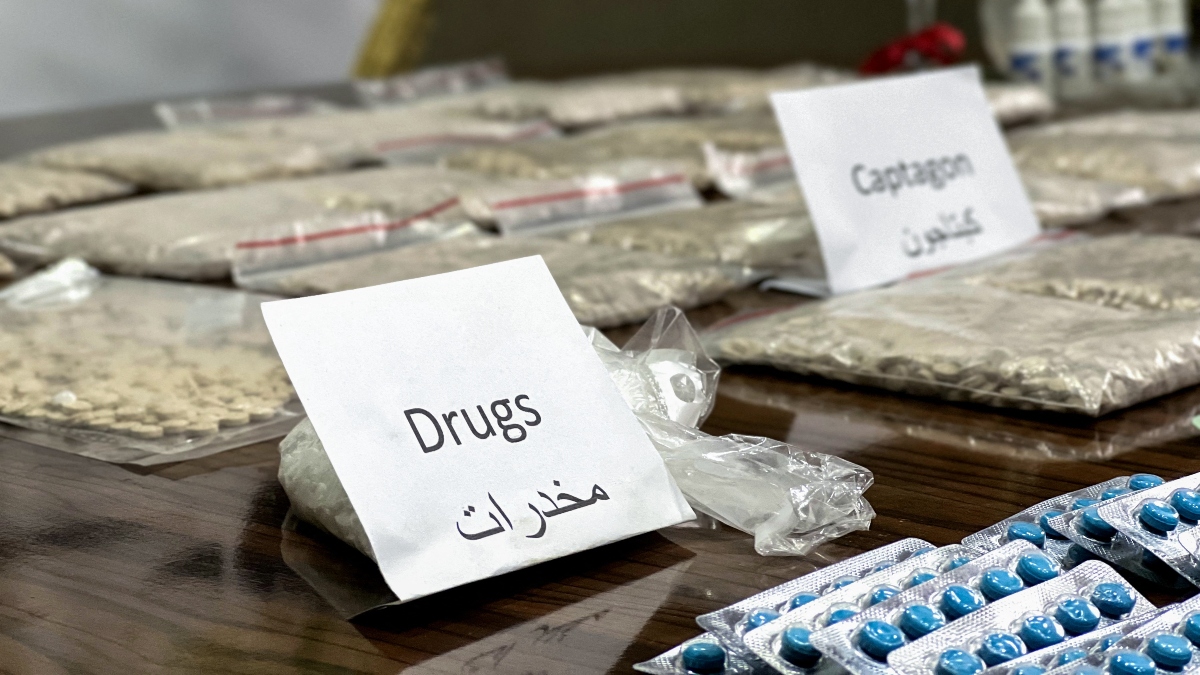Syria’s production of the Captagon drug has nearly stopped since the fall of Bashar Al Assad’s regime, according to The National report_,_ citing a Jordanian and a European official.
The drug’s cross-border flow has been a significant national security threat in the Middle East, with billions of dollars worth of Captagon smuggled from Syria into other Arab countries through Jordan since 2018.
According to The National report, in 2021, Syria’s government is estimated to have earned over $5 billion from Captagon sales.
Dealers frequently targeted the wealthy Gulf states, leading to major drug busts in Saudi Arabia, the UAE, and other countries, added the report.
The spread of Captagon has been facilitated by cartels linked to Syria’s Fourth Armoured Division and Iranian-backed militias. It was a key income source for the ruling elite in Damascus, as well as for Hezbollah and other non-state actors, The National quoted regional security officials as saying.
The drug trade played a crucial role in prompting Arab nations to reconcile with Al Assad three years ago, normalising relations with his government and seeking cooperation to combat smuggling.
“It is at least 90 per cent down,” The National quoted a European official who toured the border area between Jordan and Syria last week, as saying.
Over the past five years, the US and other nations have contributed hundreds of millions of dollars in electronics and hardware to bolster Jordan’s frontier defences. Despite more frequent Captagon and drug seizures, smuggling has continued to rise, with production increasing and smugglers becoming more sophisticated.
Impact Shorts
More ShortsIn the past week, Syrian militants took control of major Captagon factories in coastal Syria, Homs, and areas around Damascus. Cartel members linked to the former regime and Hezbollah have fled the production sites, the official said.
“What is left are small, scattered workshops, and small players on the border,” he was quoted as saying.
The report also quoted a Jordanian source corroborating the significant drop in the illicit trade, saying that the disappearance of the Syrian army from the border has robbed the smugglers of cover.
“The Fourth Brigade used to launch smoke bombs to help them infiltrate, and Hezbollah flew surveillance drones,” he was quoted as saying, adding that both actors are no longer present.
The Fourth Brigade played a key role in importing raw materials from Iraq and Lebanon to Syria’s Captagon production centers.
Captagon production surged in 2018 after Russian intervention helped Assad’s forces regain control of most of southern Syria from rebels. Russia intervened in 2015 to prevent the regime’s collapse amid a rebel offensive aimed at capturing Damascus.
Under a Russian-US-Israeli agreement, Assad’s regime was allowed to retake the south, provided Hezbollah and other pro-Iranian militias stayed away from the frontier.
However, the halt in Captagon production may be short-lived, Nicholas Krohley, a Middle East security analyst who co-authored a report on Captagon for XCEPT, an independent border security organisation, told The National.
Krohley anticipates that militias in Iraq aligned with Iran’s Islamic Revolutionary Guard Corps will exploit the gap and trigger a new surge in production.
“The IRGC needs that revenue, and the Levant is now more or less cut off,” Krohley was quoted as saying.
“In Syria, it really depends on what happens politically,” Krohley added.
He said that if militia rule continues in Syria, the Captagon could become a “means to generate revenue, provide services, and compete for influence”, among the new warlords.
“Captagon will be an appealing quick-fix for cash.”
A Captagon pill, often produced at converted medicine factories, costs as little as a few cents to produce but is sold for several dollars in Jordan. The highest quality went to other Arab countries and was sold for as much as $20 a pill.
With inputs from agencies
)